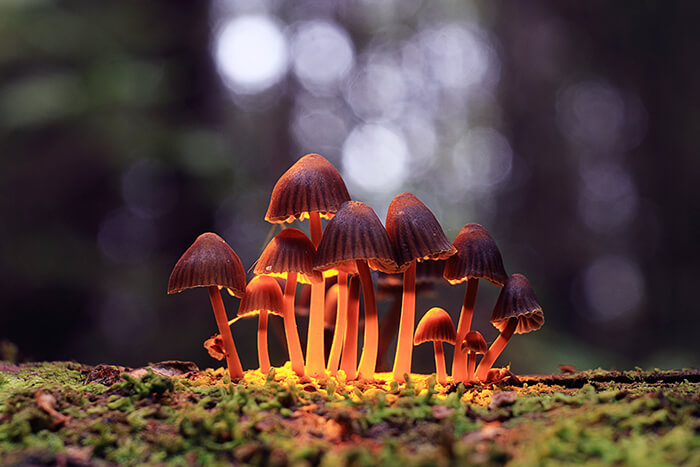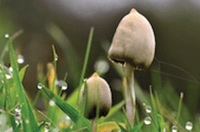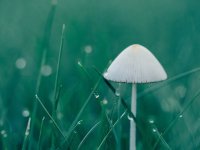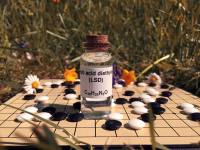
Psilocybin is the World’s Safest Recreational Drug

Psilocybin was responsible for less emergency medical treatment than any other drug in the past year
Humanity’s innate desire to explore consciousness has driven virtually every civilisation in human history to make use of mind-altering substances. Our modern society is no different, yet repressive laws and a lack of cultural infrastructure means that many users are emotionally unprepared to integrate the experiences generated by psychedelics and other drugs, which can lead to problematic modes of use.
Research on the therapeutic use of psychedelics is helping to fill this educational void and reveal how these compounds can be utilised for the benefit of society, and data provided by Global Drug Survey (GDS) steers us in the right direction by indicating how drugs are currently being used and experienced by the world’s population.
The results of this year’s GDS are released today, and reveal that psilocybin is responsible for less emergency medical treatment that any other drug worldwide, with just 0.2% of users having sought help in the past year. Psilocybin is a non-toxic compound, and a recent Beckley/Imperial study found that not only is it harmless to health, but it is also remarkably effective at treating depression, even in cases where all other therapies have failed.
Like psilocybin, LSD is a non-toxic substance that, when used in a psychotherapeutic setting, has the potential to facilitate positive changes in personality traits and support mental health. It too was involved in fewer visits to the emergency room than non-psychedelic drugs like alcohol and amphetamines, although rather than look only at the stats, it is also important to consider the nature of the distress experienced by users of different substances.
While alcohol, heroin and cocaine can cause genuine physical damage in the form of respiratory and heart problems, for example, hospitalised users of psilocybin and LSD are invariably treated for temporary anxiety, fear or disorientation while under the effects of the drug. The need for medical attention is therefore most often a result of a lack of emotional preparation for the intensity of the psychedelic experience, rather than any biological side-effect.

Unprepared users may seek treatment if they find their psychedelic experiences disturbing, but they are unlikely to come to any actual harm
That isn’t to say that these substances should be considered completely risk-free, and people with a history of schizophrenia and certain other psychiatric conditions are advised to avoid LSD and psilocybin. Yet on the whole, it can be said that with the correct education and emotional support, the need for emergency medical attention while on psychedelics can be largely eliminated.
The GDS also found that around a third of psychedelics users have tried microdosing at some point in their lives. Of those who claimed to do so as a means of managing a medical or psychiatric disorder, 94% said that microdosing had a positive impact on their symptomology, while just 0.4% described the effect as negative.
The Beckley Foundation is currently preparing to undertake the world’s first brain imaging study on LSD microdosing in order to determine the neurological mechanisms behind the reported positive effects of using small amounts of psychedelics.
Crowdfunding organisation Fundamental has set up a campaign to finance this groundbreaking research, and we plan to begin conducting the study towards the end of this year.
Words: Benjamin Taub
Podcast
- All
Links
- All
Support
- All
BIPRP
- All
Science Talk
- All
Amanda's Talks
- All
- Video Talk
- Featured
- 2016 Onwards
- 2011-2015
- 2010 and Earlier
- Science Talk
- Policy Talk
One-pager
- All
Music
- All
Amanda Feilding
- All
Events
- All
Highlights
- All
Psilocybin for Depression
- All
Current
- All
Category
- All
- Science
- Policy
- Culture
Substance/Method
- All
- Opiates
- Novel Psychoactive Substances
- Meditation
- Trepanation
- LSD
- Psilocybin
- Cannabis/cannabinoids
- Ayahuasca/DMT
- Coca/Cocaine
- MDMA
Collaboration
- All
- Beckley/Brazil Research Programme
- Beckley/Maastricht Research Programme
- Exeter University
- ICEERS
- Beckley/Sant Pau Research Programme
- University College London
- New York University
- Cardiff University
- Madrid Computense University
- Ethnobotanicals Research Programme
- Freiburg University
- Medical Office for Psychiatry and Psychotherapy, Solothurn
- Beckley/Sechenov Institute Research programme
- Hannover Medical School
- Beckley/Imperial Research Programme
- King's College London
- Johns Hopkins University
Clinical Application
- All
- Depression
- Addictions
- Anxiety
- Psychosis
- PTSD
- Cancer
- Cluster Headaches
Policy Focus
- All
- Policy Reports
- Advisory Work
- Seminar Series
- Advocacy/Campaigns
Type of publication
- All
- Original research
- Report
- Review
- Opinion/Correspondence
- Book
- Book chapter
- Conference abstract
- Petition/campaign
Search type


